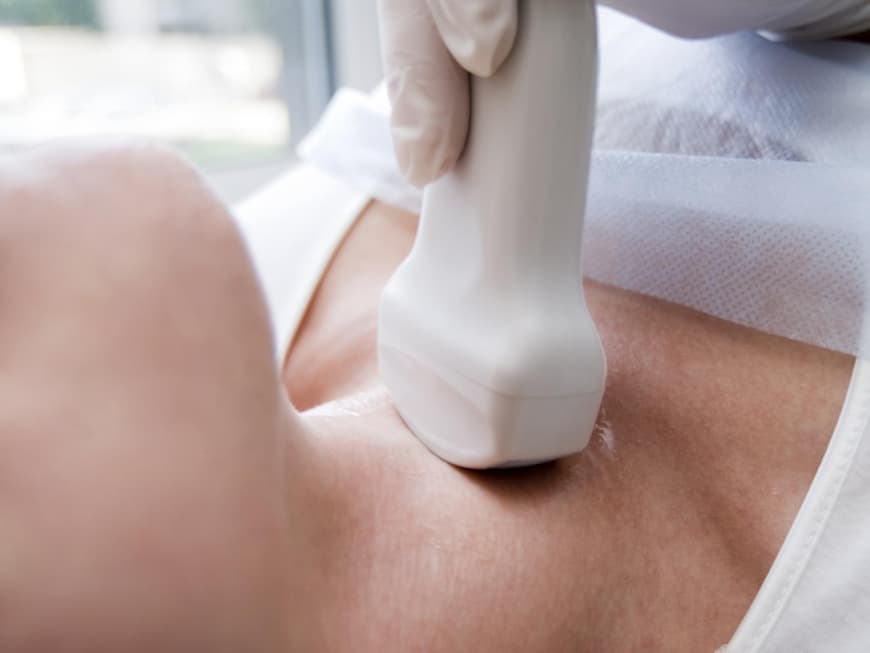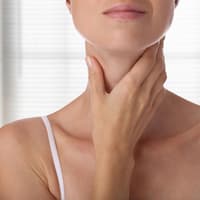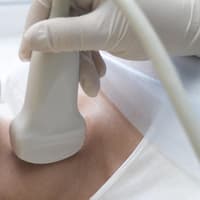Problems with the thyroid gland are rarely recognized immediately. Are you gaining weight even though you are no longer eating - or are you suddenly losing weight? Are you hectic and nervous, or do you suffer from listlessness? There may be one and the same problem behind these symptoms: a malfunctioning thyroid gland. We answer the most important questions.
Why do we actually need the thyroid so urgently?
Answer: Thyroid hormones regulate our metabolism, decide whether the heart beats normally or races, whether the stomach and intestines work well, whether our nervous system is stable and even how well our hair and nails grow. Patients who have had their thyroid gland removed - due to a tumor, for example - must take medication for the rest of their lives.
Are thyroid problems more of a woman's problem?
Answer: Yes, women actually suffer from hypothyroidism or hyperthyroidism more often than men. Experts suspect that this is due to the female hormonal balance. It is subject to frequent fluctuations. Pregnancy and the menopause, as well as hormone intake for contraception, expose the body to changing hormonal influences. And since all these endogenous messenger substances, including thyroid and sex hormones, work together, disorders often occur during or after such changes.
Are people over 40 more likely to have thyroid problems?
Answer: Yes, in addition to gender, age also plays a major role in thyroid health. This is because the small organ ages early. The transformation process begins between the ages of 30 and 40: the glandular tissue shrinks and degenerates. As a result, lumps, cysts and calcifications can form. In addition, the concentration of hormones from the pituitary gland and thyroid gland changes.
And what if there really is a disorder?
Answer: Patients with goitre, hypothyroidism or hyperthyroidism can be treated well with medication.
Is there anything to bear in mind when taking the tablets?
Answer: Yes. The hormones for the thyroid should be taken in the morning half an hour before breakfast on an empty stomach with tap water. If this is not adhered to, the effect can be 30 percent less than desired. You also need to be careful with certain minerals: Calcium, which is often prescribed to strengthen the bones, should only be taken two hours after the hormones. As a precaution, the two-hour interval is also recommended for magnesium, even though no scientific studies are available on this yet.
Do these hormones for the thyroid really make you slim?
Answer: No. Anyone who has put on a few extra pounds due to hypothyroidism can bring their weight back to normal by taking thyroid hormones. But be careful: never increase the dose of the active ingredient on your own initiative. You risk cardiac arrhythmia.
I don't like turtlenecks - could this be due to my thyroid?
Answer: Your choice of clothing may actually be related to thyroid problems. If you don't like wearing turtlenecks, scarves or necklaces because you feel like they are constricting your throat, you may have an enlarged gland. The doctor can often detect this by palpation. Ultrasound and a blood test then provide definitive certainty as to whether you may be suffering from hypothyroidism or hyperthyroidism.
What exactly is Hashimoto's syndrome?
Answer: An immune disorder of the thyroid gland that occurs ten times more frequently in women than in men - often between the ages of 25 and 45. The immune system produces antibodies against the thyroid gland. However, this disease can also be treated with medication.








